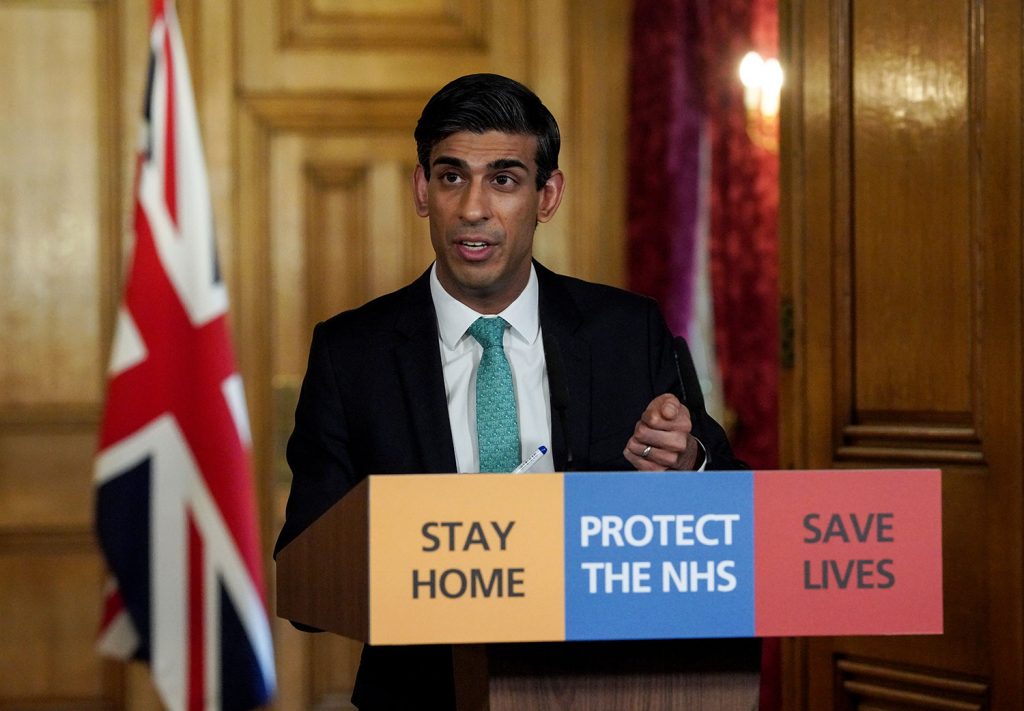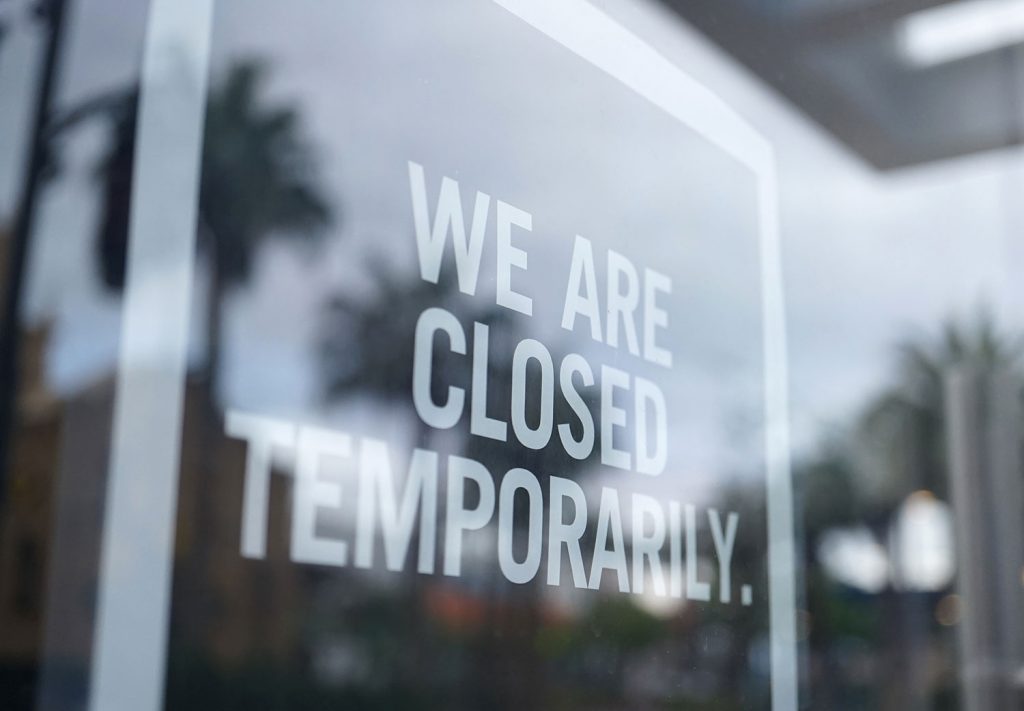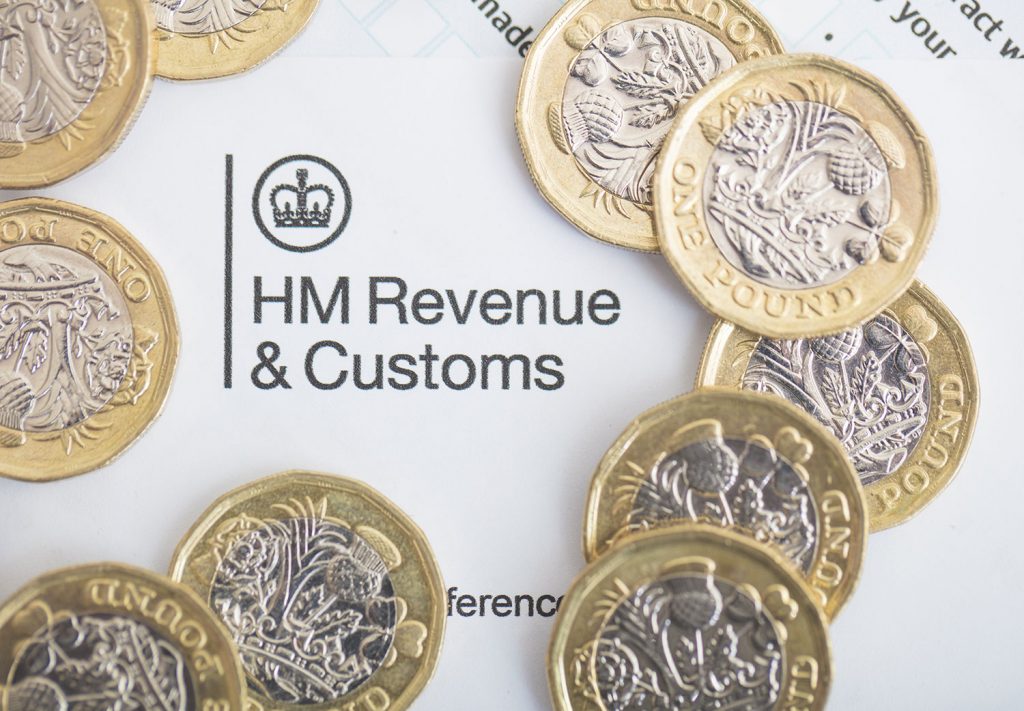What effect is Coronavirus having on your pay packet? What if you are furloughed? What about tax? And IR35?
RailStaff sought the advice of an HR consultant and a tax expert to find out what the Coronavirus epidemic could mean to you and the money you take home. Whether you are employed, self-employed or even laid off, it’s essential reading.

With businesses across the nation feeling the pinch of COVID-19, Chancellor Rishi Sunak was the Man of the Moment in March, bringing in an unprecedented bundle of financial measures designed to keep the country afloat.
But what did the Chancellor’s rescue packages actually mean for the millions of people hit hard in the pocket by the pandemic? How will the billions pledged impact the millions affected?
Furlough? What’s a furlough?
A term that many of us will never have heard before is suddenly on the tip of everyone’s tongue. With many organisations struggling to keep the doors open, the government’s announcement of an up to 80 per cent government-funded wage payment, known as furloughing, seemed like light at the end of the tunnel for many.
However, despite the overwhelming excitement felt by millions at the announcement of the £78billion Job Retention Scheme, this complex procedure is not as cut-and-dried as it first appeared…
A company has to be facing financial hardship caused by COVID-19, such that you would otherwise lose your job to closure or be made redundant. A furloughed employee can expect to have up to 80% of their salary paid by the government for up to three months. If an employee has more than one job, they can be furloughed from each employer individually, with a separate cap applied to each contractual agreement.
The request to furlough employees has to be overseen by the organisation – whilst an employee can suggest it, it is not something that an individual employee can process.
“One of the main sticking points so far has been that businesses have to be able to pay the 80 per cent payments themselves, whilst waiting for government grants to come through,” explained Jennefer Willmore, HR business consultant from MP HR Services. “These aren’t likely to be ready until the end of April and, in many cases, there just isn’t the money in the pot to be able to fund this.
“Unfortunately, whilst furloughing staff seems like an amazing idea, it is not always a simple case of ticking a box and handing over 80 per cent of a salary. If the money is simply not there to pay it, many businesses are left with very little option but to let their staff go, or work with them to eke out what little is left until the end of April. This can mean having frank discussions about employees taking unpaid leave or reducing salaries, with the promise that they will be furloughed and paid when the grant comes through.
“It’s a terrible situation, but one that we are sadly seeing a lot, from businesses of all sizes.”
One of the biggest questions hanging over furloughed workers surrounds whether or not they can still get involved with helping out on volunteer schemes. Network Rail has made numerous requests on social media asking for help from the industry – looking for signallers, crossing keepers, MOMs – and many rushed to help. However, if you were a furloughed employee, is this something you can legally do (qualifications allowing, of course)?
“Legally, employees can no longer carry out any work for their current employer once they have been furloughed. However, they are able to take part in volunteer work or training whilst furloughed, as long as this does not provide services or generate revenue for the original organisation,” explained Jennefer.
“If workers are required to complete any training whilst they are furloughed, they must be paid at least the National Living Wage/National Minimum Wage for the time spent training, even if this is more than the 80 per cent of their wage that will be subsidised.
“That said, it is also worth considering that the terms of the employees’ current contract of employment are still valid during this time. If there is a clause that states that they are not able to seek additional employment whilst working for their organisation, or that certain types of employment may register a conflict of interest, this could legally be taken into account by their current employer.
“It really is worth discussing any secondary employment moves with your original employer. An open and honest chat is always the best policy!”
Saving the self-employed
With the UK being made up of around five million self-employed people (around 15 per cent of the working population), contributing £305billion to the economy every year, it was no surprise that there was a national outcry for support for this hefty percentage of the nation.

When the Chancellor announced his package of support back in March, many breathed a sigh of relief, but some of the promises were a little puzzling. Understandably, given the diverse nature of self-employment across the board, building a package to service everyone was never going to be easy, but many were unsure exactly how the measures were going to work.
Similar to the package drafted for employed workers, the Chancellor has pledged to provide the self-employed access to up to 80 per cent of their average profits, up to £2,500 a month, for three months (although this may be extended if required). This takes the form of a taxable grant, which it is understood will be taxable in the 2020/2021 tax return.
Grants are available for anyone earning up to £50,000 a year, and who earns over 50 per cent of their income from self-employment.
“Whilst the self-employment offering is a little more confusing, much of the complication is removed due to the way the grant is accessed,” said Jennefer Willmore. “Anyone eligible for the grant will be contacted directly by HMRC, with a simple digital form to complete, and, as long as this is completed honestly and fully, HMRC will manage all calculations and arrange for full payment to be made directly into the stated account, possibly by the end of June.
“Additional assistance has been put into place for anyone who cannot access the grant, in the form of a streamlining of the Universal Credit and Tax Credits systems, and we urge anyone who is not eligible for the grant to look into the Coronavirus Business Interruption Loan Scheme.”
This scheme, aimed at throwing a life raft to SMEs who are losing revenue due to COVID-19, provides small businesses with the opportunity to access a loan of up to £5million to help see them through the crisis. The scheme gives lenders a government-backed guarantee for the loan repayments and provides a repayment term of up to six years, with the government footing the bill for all interest and fees for the first twelve months.
Tax warning
In a final boost, the Chancellor extended a tax payment break to the self-employed, allowing the upcoming July payment, the second payment on account towards tax year 2019/2020, to be deferred until January 2021 without penalty or interest.
“This is a useful break for anyone who is experiencing cash-flow issues at the moment due to COVID-19. However, it is wise to remember that the July tax payment will still have to be made, therefore potentially doubling the amount owed in January,” warned David Tunstall, client manager at accountancy firm Auker Hutton.

“With the end of the 2019/2020 tax year having just passed, many self-employed people will be readying their tax returns for the past year. Of course, 11 months of the year are likely to have seen normal profits – most of the losses or downturn in profits will fall into the following 2020/21 tax year – and so the final tax liabilities are unlikely to be very different.
“By delaying the July payment until January 2021, when the first payment on account for 2020/21 is also due, you will effectively end up owing the equivalent of a full year’s tax liability at a time when cashflow may still be tight. Therefore, if you can make the July payment, or at least some of it in the meantime, you will be easing the burden come January.
“We’re advising our clients to get their information to us as soon as possible, so that we can calculate the tax due for 2019/20 sooner rather than later. They’ll then have a clear picture of what’s due, giving them longer to plan how to pay. And, of course, any repayments can come back sooner rather than later.
“We also advise keeping your records for 2020/21 up to date as you go, rather than writing them up in one go in April after the end of the year. By January 2021, you should have a good idea of what your 2020/21 profit will look like and therefore decide whether, and by how much, you’re able to reduce your January payment on account.”
IR35 in question
The implementation of the controversial IR35 reforms, which were due to come into force on 6 April 2020, has been deferred until 6 April 2021. The government made these changes in order to assist businesses and individuals whilst managing COVID-19, but insists that the changes are only a deferral, and everything will still go ahead as planned next year.
The changes, which will force UK businesses to assess the tax status of their contractors and freelancers, could have a hefty impact on many contractors working within the rail sector.
Under the current IR35 legislation, if a contractor is considered to be carrying out a role under terms similar to that of an employee, tax and national insurance contributions equal to those of an employee should be made. However, for contractors working in the private sector, it is they who decide whether this applies to them and so there have been many criticisms of the scheme, stating that it is all too easy for contractors to ‘fall through the net’.
The new rules, which have been in place for contractors working in the public sector since 2017, transfer the decision-making responsibility onto the end client to assess which contractors fall under the IR35 banner.

Contractors who are subsequently judged by their end client to be inside the scope of IR35 could find themselves paying up to 25 per cent more tax than they have previously, despite not receiving benefits enjoyed by full-time employees, such as holiday or sick pay, pension, or parental leave.
As well as these IR35 changes, the self-employed could also be facing a shake-up of their tax system, following the Chancellor’s announcements back in March. Mr Sunak noted in his speech about how he planned to help the self-employed workforce that he anticipated having to ‘right the ship’ with regards to the difference between tax paid by the self-employed and employees. Although he refused to be drawn on how this looked, stating that he didn’t want to be ‘too specific right now about future tax policy’, many expect this to be relating to a potential increase in National Insurance contributions for the self-employed.
“The much-needed recovery financial package delivered by government for businesses and individuals is unprecedented,” said David Tunstall. “Along with extra funds being channelled into the NHS frontline, there’s now a large unplanned-for hole in the UK’s finances which the government will ask us to repay once all of this is over.
“Although the IR35 changes for contractors, which will result in a large proportion paying more tax, will now not be introduced in April this year, this is only a 12-month deferral. We know the government is adamant that this change will come in. For those contractors that are worried about what this could mean for them financially, they should use this extra time to review their contracts and working practices to see what changes could be made.
“We now also expect to see a big change in the self-employed space moving forwards. The Chancellor has given us a very clear hint that this will likely include National Insurance contributions increasing to sit in line with the amount paid by employees.”
As we work through the toughest economic crisis ever to hit the UK in modern history, there is some comfort that, for the short term at least, many of us will be protected by the government’s actions in the eye of the storm. However, how this could shape the future of our working world is yet to be seen.
Keep safe – and watch this space.


